The Nextreme Value Chiller Series from Laird Thermal Systems Offers Reliable, Cost-efficient Temperature Control for Electron Microscopes
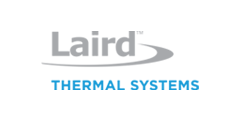



Introduction
Electron microscopes are powerful laboratory tools used to observe samples across many scientific disciplines. These advanced analytical instruments enable researchers to qualitatively and quantitatively analyze samples in fields like metallography, metrology, anthropology, zoology, epidemiology and more. Temperature control plays a dynamic role in ensuring the proper operation of electron microscopes. This includes sample temperature stabilization, as well as thermal control of sensitive equipment electronics. Thermal fluctuations can degrade the quality of the microscopic imaging, and lead to a break down in the composition of the sample under examination.
Compressor-based chillers with integrated temperature control offer OEMs a cost-effective and efficient advanced thermal management solution that keeps sensitive electronics in their lab equipment designs at the optimum temperature. Moreover, new industry restrictions on hazardous refrigerants central in traditional chiller technology require electron microscope manufacturers to find more environmentally friendly, efficient and maintenance-free temperature control options for their equipment. The eco-friendly Nextreme™ Value Chiller quietly cools temperature-sensitive components below ambient temperature to ensure optimum image quality.
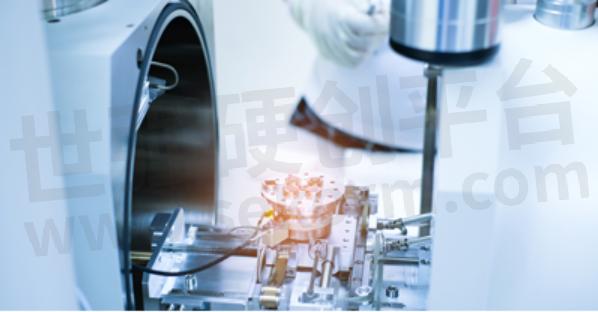
Lab instrumentation tools such as electron microscopes require an advanced thermal management solution
for precise temperature control of electronics and samples.
Background
An electron microscope uses a beam of accelerated electrons to illuminate the ultrastructure of a wide range of biological and inorganic specimens including microorganisms, cells, large molecules, biopsy samples, metals, and crystals. There are several types, each with different configurations and techniques for analyzing specimens. However, all electron microscopes use a high-voltage electron beam to illuminate a specimen and create an image. The electron beam is produced by an electron gun.
OEMs implement thermal management systems that cool the digital cameras used for image creation to improve image quality. Active cooling is required to deliver optimal image resolution independent of the operating environment. In addition, advanced electron microscopes also have temperature control functionality for the specimen holder.
The electron beam can be controlled or manipulated via a magnetic field according to the “left-hand” rule. Electromagnets create a magnetic field that allows for the formation of a magnetic lens of variable focusing power. The coils, which produce the magnetic field, are located within the lens yoke. The coils can contain a variable current but typically use high voltages and therefore require significant insulation in order to prevent short-circuiting the lens components. These coil windings require a thermal management solution to remove the heat generated when creating the magnetic field.
Application Challenges
Designers face a number of thermal challenges when developing electron microscopes. As mentioned, several key microscope components, including the image recording electronics, the electromagnetic coils, and the sample port require stable thermal control below ambient temperatures. To go below ambient temperatures, refrigeration systems are required. This isn’t possible with other cooling technologies like liquid heat exchangers, which use air to cool a cooling loop.
In addition to meeting thermal control requirements for these three electron microscope elements, cooling solutions must also meet smaller size, lighter weight and reduced power consumption requirements. To optimize customers’ lab space, OEMs look for ways to decrease device size while increasing device functionality. As a result, more electronics are packaged into smaller housings, increasing the heat flux density and thermal challenges. This waste heat must be managed and dissipated efficiently in order to enhance the imaging capability of the electron microscope, while reducing power consumption and providing quieter operation (both lower noise and vibration).
Electron microscopes are sensitive to disturbances, such as vibration, in the surrounding environment. Some liquid pump models cause more vibration as a result of higher pulsations in the fluid lines. This is the case with a rotary vane pump and some centrifugal pumps. Turbine pumps have significantly less pulsation, which enables better imaging by the microscope.
The thermal management system needs to provide condensation protection for the electronic microscopes. Moisture forms on cold surfaces as temperature drops below the dew point. If this moisture seeps into the electronics, or onto the lenses, it can affect image quality and may even cause deterioration and ultimately failure of the electronics. Using properly designed insulation materials can provide a cooling solution resistant to moisture intrusion.
Electron microscopes must follow UL61010-1 or IEC 61010-1 lab safety standards. These standards ensure safety of the operators and include specifications for electromagnetic compatibility and electromagnetic emissions to ensure electron microscopes can operate in the same room as other electronic equipment without interference. When designing an electron microscope, OEMs either ask for a certification from the chiller manufacturer or certify it themselves as part of the installed system.
In addition, many governments continue to develop strict environmental legislation aimed at curbing climate change, which restricts usage of refrigerants in several refrigeration and freezer systems. The phase-down on environmentally harmful refrigerants, like HFC refrigerants including R134a and R404A, has led to the development of new, eco-friendly refrigeration systems. These systems use natural refrigerants that have a reduced eco-footprint. However, the flammable nature of some natural refrigerants can make them hazardous to transport, and each one presents design challenges such as increased pressure, high toxicity, flammability, asphyxiation, and relatively poor performance. Another restriction in Europe is ROHS (Reduction of Hazardous Substance), which means that you cannot use lead, mercury, cadmium and other heavy metals in electronic products.
Comparing Cooling Technologies
Modern compressor-based liquid cooling systems meet the electron microscope design requirements mentioned above. Compressor-based liquid cooling systems, which are self-contained units that recirculate coolant to a predefined temperature set-point, allow for optimal thermal stabilization and more precise temperature control. Standard and custom liquid cooling systems are able to dissipate the large amount of heat generated in densely packed electronic environments like electron microscopes.
Compressor based refrigeration systems offer a high coefficient of performance (COP). If they are cooling a heat load of 3 kW, they only require 1 kW of energy to do the work to cool it. Compressor-based systems tend to be smaller than alternative technologies like liquid-air-heat exchangers when achieving set-points near ambient temperatures because they make use of the refrigerant’s latent energy to increase heat exchanger efficiency.
If the product is operating in ambient temperature, liquid-heat-exchangers are more efficient. However, liquid-to-air heat exchangers do not cool below ambient like compressor-based and thermoelectric systems.
Central facility cooling systems are another option previously used to cool electron microscopes. Since these systems are used to cool equipment in the entire building, it can be difficult to satisfy all of the instrumentation’s cooling requirements with one centrally controlled system. In addition, it cannot guarantee a constant temperature and flow rate.
Laird Thermal Systems Solution
The Nextreme Value Chiller Series from Laird Thermal Systems offers reliable, cost-efficient temperature control. Based on the design for the Nextreme Performance Chiller Series, the Value line offers the same ease of use, high reliability, and low maintenance features as the Performance Series but at a lower cost through materials (brass instead of stainless steel), simpler components (single speed instead of variable speed compressor) and different control system (switches instead of sensors). This provides more competitive pricing to OEMs looking for a packaged solution with their instrument. Most importantly, the Nextreme Value Chillers can be configured and engineered to meet unique requirements for analytical and medical applications.
The Nextreme Value Chiller Series uses high-performance, compressor-based technologies to cool equipment well below ambient temperatures and dissipate heat away from thermally sensitive equipment. The chillers from the value series offer a high coefficient of performance (COP) and can maintain a thermal set point with an accuracy of ±0.5°C in the supply coolant. Available in a footprint as small as 19.0 x 22.1 inches the Nextreme Value Chillers are smaller than most conventional cooling solutions.
The Nextreme Value Chiller Series is available in three standard models, 1200, 2400, and 4500 Watts. All these models can be configured to meet specific application requirements.
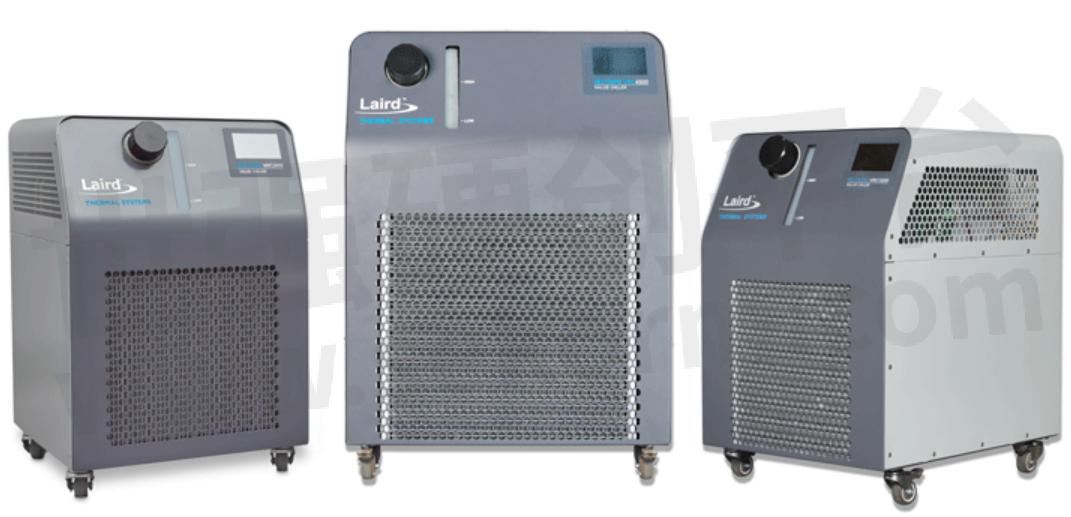
The Value Chiller products offer a lower cost of ownership and ease of use through:
·High reliability
·Pump technology with no-wear components
·Low fluid pulsation
·Capability of high pressure at rated flows
·Filtration and flow options
·Prevention of evaporative losses and bio-fouling
·Lower investment cost and added installation flexibility with the standard system
·Increased uptime
·Improved alarm condition detection
·Remote communication protocol for requesting data or sending setpoints
·User-settable pressure limits to prevent equipment damage
The easy-to-use, LCD color touchscreen display comes standard and provides a simple user interface that communicates system status without the need for alarm codes or symbols. It allows the technician to control temperature setpoints, coolant type, pressure, and alarm settings while coolant level is easily monitored through the indicator window located on the front panel.
A semi-closed fluid system with pressure/vacuum reservoir cap prevents evaporative losses, the introduction of bacteria, and eliminates the need for additional hardware to prevent fluid drain-back. Other products on the market use an open/vented system that is simple to install and use but requires increased maintenance and monitoring of fluid levels and coolant quality. With the added functionality in the Value Chiller’s reservoir cap, less time is required to maintain system operation and uptime, and higher fluid quality level allows longer life of critical components like the pump, heat exchangers, and sensors.
Other standard features include optical fluid level-sensing with no moving parts; RS-232/Ethernet communications for integration into higher-level assembly control systems; and supply pressure sensing. Optional features include a hot-swappable, 5-micron water filter for filtering particulates from the coolant circuit and flow control valve and sensor to reduce and measure overall flow to the application (full flow continues through the chiller to maintain high heat transfer rates and temperature stability).
Using environmentally friendly R513A refrigerant, the Nextreme Value Chillers achieve similar performance with half the Global Warming Potential (GWP) compared to traditional hydrofluorocarbon (HFC) refrigerants. The chillers not only meet CE, REACH, and RoHS requirements but also UL61010-1 and IEC 61010-1 lab safety standards. While other chiller manufacturers require a different model for Europe and North America, Nextreme Value Chillers can be operated anywhere in the world. This allows OEMs to test equipment in one country before shipping to a different region. They also can carry less inventory as a single chiller can ship globally.
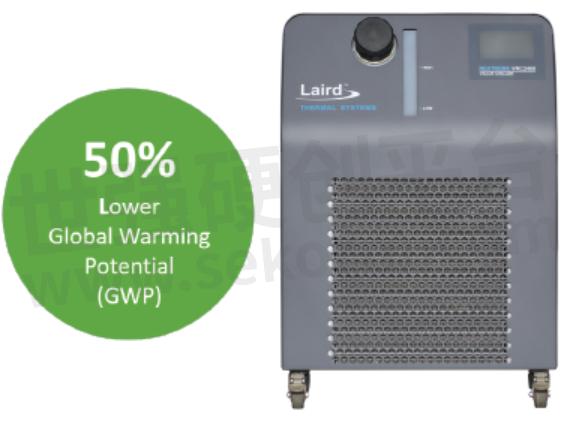
Most importantly, Laird Thermal Systems’ team works with OEMs to develop solutions that work best for their applications. Its design engineers can make modifications to the Value Chiller—such as supplying hose kits, modifying factory settings on the display, or changing out pump types—offering OEMs customized solutions with the cost and delivery times of off-the-shelf products. If the Value Chiller isn’t a fit for an OEM’s application, Laird Thermal Systems’ Thermal Wizard will help identify the right cooling solution that meets the application’s demands. Finally, Laird Thermal Systems supports OEM customers with high-mix products. Supply chain and production planning exceed industry standards with on-time delivery, so the OEM may carry low amounts of inventory and plan shipments on an as-needed basis with high confidence product will arrive on time.
The Value Chiller is a cost-effective, low-maintenance cooling solution that promises OEMs’ customers long-life component technology and system control that prevents failures, maximizing system uptime. This high reliability ensures end users experience fewer operational issues, increased throughput, and a better customer experience using OEMs’ equipment.
Conclusion
Properly cooling an analytic instrument like an electron microscope requires a sophisticated thermal management system. Modern compressor-based refrigeration systems are more advanced and efficient than previous versions. Compact chiller systems offer a higher coefficient of performance with maximum uptime and minimal power consumption compared to the application’s heat load. The versatile Nextreme Chiller provides quiet operation in a smaller and lighter package compared to previous models. The Nextreme recirculating chiller platform enables more focused and improved performance resulting in a precise image with better resolution.
- |
- +1 赞 0
- 收藏
- 评论 0
本文由samsara转载自Laird Thermal Systems Official Website,原文标题为:OEM Perspectives: Thermal Management of Electron Microscopes,本站所有转载文章系出于传递更多信息之目的,且明确注明来源,不希望被转载的媒体或个人可与我们联系,我们将立即进行删除处理。
相关推荐
针对投影激光器的热电制冷器:莱尔德热系统UltraTEC™ UTX系列,运行噪音低,能耗降低多达50%
热电制冷器可提供局部点冷却,以保证卓越的温度稳定性,从而保持激光器和光电子器件的峰值性能。由于其固态运行,像Laird Thermal Systems UltraTEC UTX系列这样的热电冷却器可实现低维护和长寿命运行。通过在先进材料科学方面的突破,与标准热电冷却器相比,该产品系列能够提供更高的性能和更高的性能系数。
Precise Temperature Control for Microscopes
Electron microscopes require precise temperature control for optimal imaging. The Nextreme™ Chiller by Laird Thermal Systems offers an eco-friendly, efficient, and precise cooling solution that meets safety standards, operates globally, and enhances microscope performance with low noise and vibration. It uses R513A refrigerant and is configurable for various cooling needs.
Laird Thermal Systems‘ Nextreme™ Value Chillers Provide Economical, High Reliability OEM Cooling Solution
The Extreme Value Chiller Series uses high-performance components to cool well below ambient temperatures to control processes or dissipate heat away from thermally sensitive equipment.
Laird Thermal Systems(莱尔德热系统)液体冷却系统产品选型指南
目录- Introduction Benefits & Applications of Liquid Cooling Systems Nextreme™ Recirculating Chillers Liquid Heat Exchangers Custom Liquid Cooling Systems Featured Application: Medical Imaging
型号- 1510.00,WL1500,385901-001,VRC2400,VRC4500,NRC5000,WL3004,387008451,1550.00,LA5000,WL1000,385911-015,1520.00,387009925,OW4002,385910-043,387010178,387010179,NRC2400,1505.00,38701 0181,1264.00,1155.00,1104.00,VRC1200,WW5001,387002779,NRC400,WW3001,1515.00,WL500,WL2000,387005774,387005598,OL4503,385912-029,NRC1200,385910-015
The Nextreme™ Performance Chiller Series from Laird Thermal Systems Offers Reliable Temperature Control for Laboratory Equipment
Modern lab equipment is getting smaller and more efficient, with chillers like the Nextreme series providing precise temperature control for various applications. These chillers are compact, portable, use eco-friendly refrigerants, and meet global safety standards, helping labs save costs, space, and ensure reliable results.
【产品】莱尔德热系统推出新一代制冷机Nextreme NRC400,温度控制精准,性能系数更高
莱尔德热系统(Laird Thermal Systems)推出的Nextreme NRC400是下一代台式循环冷却器,它利用固态热电技术为分析和工业设备提供精准的温度控制。
莱尔德热系统将在2024 CIOE中国光博会上展出下一代主动制冷技术
莱尔德热系统(Laird Thermal Systems)将于9月11日至13日在深圳国际会展中心参加2024年中国国际光电博览会(简称:CIOE中国光博会),展位位于12号馆信息通信展的12A69。
TC-XX-PR-59温度控制器
描述- 该资料介绍了TC-XX-PR-59型温度控制器,这是一种用于精确控制热电偶组件温控的设备。它支持制冷和加热模式,具有用户可选择的调节方式(PID、开/关、功率),并具备两个可编程风扇输出和一个报警输出继电器。控制器可通过RS-232接口实时读取和控制参数,并提供PC软件进行编程和可视化审查。此外,还提供了技术规格和应用领域。
型号- TC-XX-PR-59
莱尔德热系统Nextreme™ Value系列上市新机型,为医疗、工业和分析设备制造商提供经济解决方案
Laird Thermal Systems的Nextreme™ Value 冷水机系列又上市了1200瓦和4500瓦两种新机型,VRC1200和VRC4500能够针对特定应用提供所需的配置,是医疗、工业和分析仪器等行业原始设备制造商的理想制冷解决方案。
Spot Cooling for Industrial Lasers & Optics
This application note will focus on how thermoelectric coolers can be used for spot cooling of industrial laser optics. Deal for spot cooling on industrial laser applications, the UltraTEC UTX Series utilizes advanced thermoelectric materials for higher heat pumping capacity compared to standard semiconductor materials.
热电冷却器组件和温度控制器
描述- Laird Thermal Systems提供多种热管理解决方案,包括热电制冷器组件和温度控制器。这些产品适用于医疗、工业、交通和电信等多个领域。热电制冷器组件具有紧凑的设计,适用于多种应用,如激光二极管封装、医疗和工业仪器中的激光、电子外壳、医疗诊断和分析仪器中的样品存储室以及各种汽车和电信应用中的电池。Laird Thermal Systems提供标准产品系列和定制解决方案,以满足不同应用的需求。
型号- TUNNEL SERIES,DA-075-24-02-00-00,POWERCOOL SERIES,DA-034-24-02-00-00,POWERCOOL,AAC-050,SUPERCOOL SERIES,DA-014-12-02-00-00,AA-150-48-44-00-XX,AA-200-48-22-00-00,DAT-105-24-02-00-00,SLA-400,AA-200,DAT-040-12-02-00-00,SLA-140-24-02-00-00,AA-060-12-22-00-00,AA-100-,AAT-032-12-22-00-00,AA-040-24-22-00-00,DAT-065-24-02-00-00,DA-115-24-02-00-00,CASCADE SERIES,387000639,LL-120-24-00-00-00,AA-200-24-22-00-00,AA-150-24-44-00-XX,SLA-400-24-02-00-00,SAA-170-24-22-00-00,DA-044-24-02-00-00,DL-210,DL-120-24-00-00,DA-045-24-02-00-00,AA-150-24-22-00-00,387000624,DA-024-24-02-00-00,OUTDOOR COOLER SERIES,AAT-027,LA-115-24-02-00-00,AA-250-24-44-00-XX,ATT-027-12-22-00-00,AAT-085-12-22-00-00,LA-024-12-02-00-00,LA-045-12-02-00-00,QE-50,387000612,DL-060,DA-280-48-02-00-00,NRC400,387003326,387003325,AA-480,387003324,DA-160-24-02-00-00,TUNNEL,AA-230,SR-54,DA-075-12-02-00-00,LL-060-12-00-00-00,ATT-055-24-22-00-00,AA-024-12-22-00-00,LA-075-24-02-00-00,DAT-029-12-02-00-00,DAC-035-12-02-00-00,AAT-055-12-22-00-00,DA-033-12-02-00-00,AA-100-24-22-00-00,SDA-195,DA-034-12-02-00-00,SAA-170,387004253,DL-060-24-00-00,DA-025,SAA-110-24-22-00-00,DAT-065-12-02-00-00,AA-230-48-D44-00-XX,DAT-105-12-02-00-00,AA-040-12-22-00-00,DA-044 -12-02-00-00,DA-280-24-02-00-00,AA-070-24-22-00-00,LIQUID SERIES,QC-50,DA-135-24-02-00-00,AA-060-24-22-00-00,DAC-060-24-02-00-00,NRC400-T0-00-PC1,AA-250-48-44-00-XX,AA-250,AA-019-12-22-00-00,SDA-195-24-02-00-00,LL-210-24-00-00-00,AA-100-48-44-00-XX,PR-59,OUTDOOR COOLER,DA-045-12-02-00-00,DA-044-12-02-00-00,AAC-050-24-22-00-00,AA-150,DA-024-12-02-00-00,AA-100-24-44-00-XX,DA-045,SUPERCOOL,AAT-085-24-22-00-00,AA-230-24-D44-00-XX,SLA-205-24-02-00-00,SDA-130-24-02-00-00,CASCADE,AA-200-48-44-00-XX,DA-011-05-02-00-00,DA-280,LA-024-24-02-00-00,LA-160-24-02-00-00,LL-060,AA-480-24-44-00-XX,AA-040,LA-045-24-02-00-00,AA-200-24-44-00-XX,LL-210,LIQUID,AA-024-24-22-00-00,DL-210-24-00-00,AA-034-12-22-00-00,AA-480-48-44-00-XX,DL-060-12-00-00
Nextreme Series Supports Cooling Needs of PET Scanning Systems
With the ability to cool well below ambient at a temperature accuracy of ±0.1°C the Nextreme Series supports cooling needs of PET (Positron Emission Tomography) scanning systems. This is a new generation recirculating chiller offering lower noise and reduced energy consumption compared to previous models.
电子商城
服务
使用FloTHERM和Smart CFD软件,提供前期热仿真模拟、结构设计调整建议、中期样品测试和后期生产供应的一站式服务,热仿真技术团队专业指导。
实验室地址: 深圳 提交需求>
提供稳态、瞬态、热传导、对流散热、热辐射、热接触、和液冷等热仿真分析,通过FloTHERM软件帮助工程师在产品设计初期创建虚拟模型,对多种系统设计方案进行评估,识别潜在散热风险。
实验室地址: 深圳 提交需求>




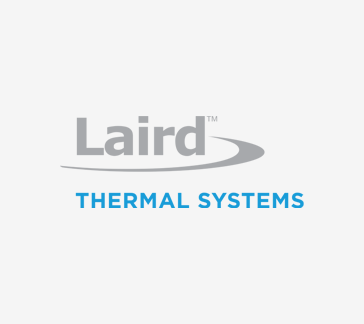
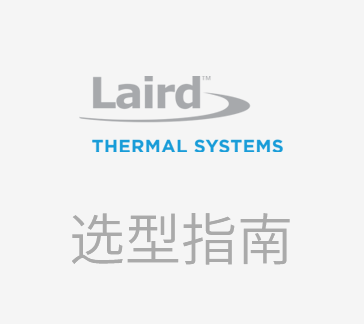








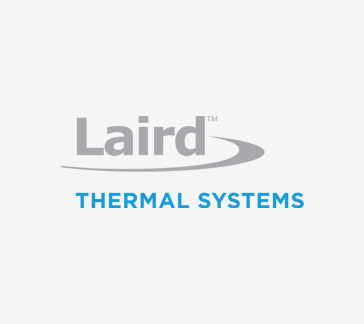






















































































































































































登录 | 立即注册
提交评论